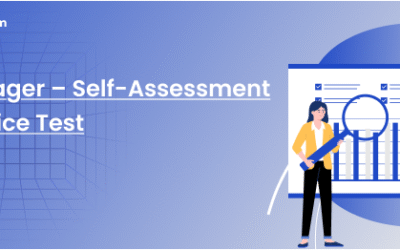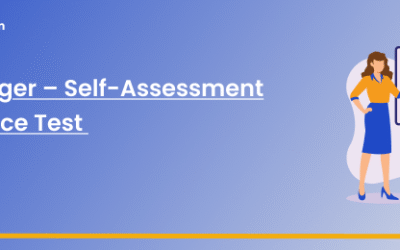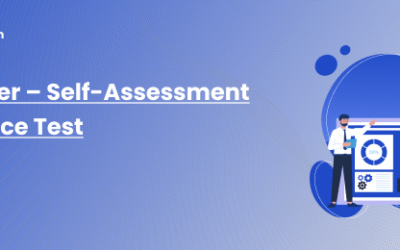Property managers play a key role in real estate, ensuring properties are well-maintained and tenants are satisfied. But what exactly do they do? Their responsibilities range from maintaining the property and handling tenant complaints to managing finances and ensuring legal compliance.
In this post, we’re breaking down the essential roles of property managers. By understanding their duties, you’ll see how they contribute to the success of real estate operations. Whether you’re a property owner or a tenant, knowing this can help you navigate property management more effectively.
Curious for more insight? Check out this YouTube video on property manager duties and responsibilities. For a deeper look at property management practices, visit our blog for updates and tips.
Key Responsibilities of Property Managers
Understanding the key responsibilities of property managers can shed light on how they ensure properties thrive and tenants enjoy a good living experience. Property managers wear many hats, from dealing with tenants and maintaining the property to managing finances and ensuring everything runs smoothly within the legal framework. Here’s a breakdown of their main responsibilities:
Tenant Management
Tenant relations are at the heart of a property manager’s role. This involves several critical tasks, including:
- Screening Potential Tenants: Property managers assess potential tenants based on background checks, credit reports, and rental history. This thorough screening helps to ensure that reliable and responsible tenants occupy the property.
- Leasing Agreements: Once suitable tenants are identified, property managers prepare and execute lease agreements. These contracts outline the terms of tenancy, ensuring both parties understand their rights and responsibilities.
- Addressing Complaints: Issues can arise, from maintenance requests to noise complaints. Property managers act as a bridge, addressing tenant concerns promptly to foster a positive community atmosphere.
For more on managing tenant relationships, visit What Is Property Management? Roles and Responsibilities.
Property Maintenance
Keeping properties in prime condition is a vital responsibility. Key elements of property maintenance include:
- Scheduling Repairs: Property managers coordinate necessary repairs, ensuring they are completed quickly and efficiently to minimise disruption.
- Regular Maintenance: Regular property inspections are crucial to identify potential issues before they escalate. This proactive approach saves money and prolongs the life of property assets.
- Overseeing Contractors: Property managers liaise with contractors and service providers to ensure the work meets quality standards and is completed on time.
For more insights on maintaining properties, check out What Is Estate Management? Manage Property and Resources.
Financial Management
Effective financial management is essential for maintaining profitability and ensuring the property runs smoothly. Responsibilities include:
- Budgeting: Property managers develop budgets that cover all operational expenses, from maintenance costs to utilities. This planning helps maintain financial health.
- Rent Collection: Timely rent collection is crucial. Property managers ensure that rent is collected and deposited promptly, monitoring accounts to address any arrears.
- Financial Reporting: Regular financial reporting keeps property owners informed about income and expenditure, providing a clear overview of the property’s financial status.
For further information on financial responsibilities, see What Is Cost Management?.
Legal Compliance
Navigating the legal landscape is essential for property managers. Their role includes:
- Adhering to Local Regulations: Property managers keep up-to-date with housing laws, building codes, and safety regulations. This compliance helps to avoid legal issues that could arise from negligence.
- Handling Disputes: In situations where disputes arise between tenants, property managers facilitate mediation, ensuring resolutions are reached while adhering to legal standards.
- Maintaining Documentation: Keeping accurate records of leases, tenant communications, and compliance documents is crucial for legal protection.
To learn more about legal responsibilities, check out What Is Legal Management? Oversee Legal Operations Successfully.
Marketing and Leasing
To fill vacancies and retain tenants, property managers employ strategic marketing techniques:
- Advertising Vacancies: Effective advertising through online platforms and social media helps reach a broader audience. High-quality photos and detailed listings attract potential tenants.
- Conducting Open Houses: Showcasing available properties through open house events allows potential tenants to view the property first-hand, increasing the chance of a lease agreement.
- Retention Strategies: Once tenants are in place, property managers focus on retention, implementing strategies like lease renewals and community events to enhance tenant satisfaction.
For more on marketing strategies, explore What Is Estate Management? Manage Property and Resources.
Skills Required for Property Managers
To effectively manage properties, property managers must possess a range of skills that help them navigate their day-to-day responsibilities. These skills enable them to communicate effectively, organise tasks efficiently, solve problems creatively, understand financial nuances, and utilise technology adeptly. Here’s a closer look at the essential skills required for successful property management.
Communication Skills
Clear communication is fundamental in property management. Property managers serve as the main point of contact between tenants and landlords. Their ability to convey information accurately can impact tenant satisfaction and landlord relationships.
- Listening: Understanding tenants’ needs and concerns starts with active listening. Property managers must pay attention to what tenants express, which helps identify and resolve issues quickly.
- Negotiation: Whether discussing lease terms or addressing complaints, strong negotiation skills ensure both parties feel heard and valued.
- Clarity: Communicating complex policies or processes in simple terms facilitates better understanding for everyone involved. By using straightforward language, misunderstandings can be minimised.
Organisational Skills
Managing multiple properties demands excellent organisational skills. Property managers juggle various tasks daily, which requires effective time management.
- Prioritising Tasks: Knowing which tasks need immediate attention helps keep properties running smoothly. This prioritisation is crucial in addressing urgent maintenance requests or compliance issues.
- Scheduling: Coordinating repairs, inspections, and tenant communications necessitates adept scheduling. A well-structured calendar reduces confusion and enhances efficiency.
- Record Keeping: Maintaining accurate records of leases, communications, and maintenance schedules supports smoother operations and provides a reference point during disputes.
For insights into resource management strategies that enhance organisational skills, see What Is Resource Management?.
Problem-Solving Skills
Every day presents new challenges for property managers. Being a skilled problem solver is important to navigate disputes and unexpected issues.
- Analytical Thinking: Approaching problems with a clear analytical mindset helps identify root causes and potential solutions. This methodical approach ensures challenges are addressed effectively.
- Creativity: Sometimes, the best solutions are unconventional. Thinking outside the box can lead to innovative resolutions that benefit both parties.
- Patience: Resolving disagreements takes time. Property managers must remain patient and calm, helping to de-escalate tensions and foster amicable solutions.
Financial Acumen
Understanding financial aspects is essential for property managers. They handle budgets, rental income, and expenditure, which impacts property profitability.
- Budget Management: Property managers create and monitor budgets to ensure all expenses are accounted for. This practice helps keep properties financially healthy.
- Financial Reporting: Regularly updating financial statements provides insights into income and expenses, allowing for better forecasting and planning.
- Rent Collection: Timely rent collection is critical for maintaining cash flow. Property managers implement systems to ensure payments are processed efficiently.
To learn more about financial management strategies, check out What Is Facilities Management? Importance and Best Practices.
Technical Skills
In today’s property management world, familiarity with technology is crucial. Property managers use various software and tools to streamline their work.
- Property Management Software: Tools like tenant management systems help automate and organise tasks such as rent collection and maintenance requests.
- Communication Tools: Utilising communication platforms facilitates efficient interactions with tenants and landlords.
- Data Analysis Tools: Understanding how to interpret data allows property managers to make informed decisions that enhance property performance.
By mastering these skills, property managers can ensure they meet the needs of tenants and landlords alike, paving the way for successful property outcomes. For further information on best practices in related management areas, explore additional resources on ticketing management for operational optimisation insights.
The Importance of Property Management in Real Estate
Property management is not just about keeping properties in shape; it’s a vital function that enhances the overall value of real estate investments. Effective property management impacts both property value and tenant satisfaction significantly.
Maximising Property Value
Effective property management plays a crucial role in boosting property values. When properties are well-maintained, they attract higher tenancy rates and can command better rental prices. Here’s how:
- Regular Maintenance: Scheduled upkeep prevents costly repairs down the line. When minor issues are addressed promptly, they don’t escalate into major problems that could decrease property value.
- Enhancing Curb Appeal: A well-maintained exterior can make a significant difference. First impressions matter; properties that look good attract quality tenants.
- Effective Advertising: Property managers market properties expertly, reaching the right audience. This strategic approach can lead to lower vacancy rates and increased revenue over time.
Investing in solid management practices can create a ripple effect that positively influences the property’s worth. For more on property upkeep, check out What Is RICS Facilities Management?.
Enhancing Tenant Satisfaction
Happy tenants are likely to stay longer and may even refer others. Good property management fosters a positive tenant experience, which can improve retention rates. Consider these management practices:
- Responsive Communication: Quick responses to tenant inquiries can significantly boost satisfaction. When tenants feel heard, they’re more inclined to stay.
- Community Building: Organising events or creating community spaces fosters a sense of belonging. Tenants want to live where they feel connected.
- Transparent Policies: Clear communication about rules and expectations ensures everyone is on the same page. This clarity can prevent misunderstandings, reducing conflicts.
By prioritising tenant satisfaction, property managers contribute to a thriving rental community. For more insights on tenant needs, explore What Is RICS Facilities Management?.
Risk Management
Property managers play a key role in minimising risks associated with property investments. They implement measures that protect both the landlord’s assets and tenant safety:
- Regular Inspections: Frequent property evaluations help identify safety hazards, from structural issues to fire risks. Early detection prevents accidents and related liabilities.
- Legal Compliance: Staying updated with local laws and regulations ensures that properties meet all legal standards. This compliance reduces risks of fines and lawsuits.
- Insurance Management: Adequate insurance coverage protects property owners from potential losses. Property managers help ensure policies are up-to-date and comprehensive.
Strong risk management strategies safeguard properties and enhance their longevity. For information on safeguarding assets, visit What Is Security Management?.
Crisis Management
In times of emergency, the role of property managers becomes even more vital. They are the first line of defence in crisis situations, ensuring safety and swift resolution. Here’s how they manage crises:
- Emergency Protocols: Property managers develop and implement clear emergency plans, from fire evacuations to severe weather responses. These plans can save lives and protect property.
- Effective Communication: Keeping all parties informed during a crisis is crucial. Property managers ensure tenants know what to do and whom to contact, reducing confusion.
- Coordination with Authorities: In severe situations, property managers liaise with emergency services, ensuring a quick response. This collaboration can mitigate damage and restore normalcy rapidly.
Property management is pivotal in ensuring safety and security during emergencies. To learn more about handling incidents, see What Is Incident Management?.
Conclusion
Property management encompasses a variety of responsibilities essential for maintaining properties and ensuring tenant satisfaction. Understanding these roles helps clarify why effective property managers are vital to successful real estate operations. Let’s look at some key takeaways from this discussion.
Essential Roles of Property Managers
Property managers carry a diverse set of responsibilities, each crucial for keeping properties in optimal condition and tenants happy. Their tasks include:
- Tenant Management: This involves screening tenants, handling complaints, and ensuring clear communication, all aimed at fostering a positive living environment.
- Property Maintenance: Regular inspections and timely repairs not only enhance property value but also ensure tenant safety and satisfaction.
- Financial Management: Budgeting, rent collection, and financial reporting are key functions that help keep properties profitable and owners informed.
- Legal Compliance: Property managers navigate the complex legal landscape, ensuring adherence to regulations and managing disputes.
- Marketing and Leasing: Strategic advertising and community-building initiatives attract and retain tenants, vital for reducing vacancies.
Understanding these roles showcases the multi-faceted nature of property management and its impact on property performance.
Skills Required for Success
Property managers must also possess a variety of skills to effectively carry out their duties. Key skills include:
- Communication Skills: Clear and effective communication is crucial for resolving tenant issues and maintaining positive landlord relationships.
- Organisational Skills: Juggling multiple tasks requires excellent time management and prioritisation, ensuring smooth operational flow.
- Problem-Solving Skills: Managers face new challenges daily, necessitating strong analytical and creative thinking to find effective solutions.
- Financial Acumen: A solid grasp of financial management practices enables property managers to maintain profitability.
- Technical Skills: Familiarity with property management software and data analysis tools streamlines processes and enhances performance.
Mastering these skills helps property managers meet the diverse needs of tenants and owners alike.
The Value of Effective Property Management
The importance of property management extends to several areas:
- Maximising Property Value: Regular maintenance and effective marketing can significantly enhance property appeal and rental income.
- Enhancing Tenant Satisfaction: Focusing on tenant needs fosters loyalty and improves retention rates, resulting in a stable income stream.
- Risk Management: Proactive inspections and legal compliance help mitigate risks associated with property ownership and tenant safety.
- Crisis Management: Quick and effective responses to emergencies help protect both tenants and property, ensuring safety and satisfaction.
In summary, effective property management is essential for success in real estate. By understanding their roles, required skills, and importance, property owners and tenants alike can appreciate the value of competent management. For further insights on current property management practices, consider exploring our related articles and resources.
Further Reading
For those looking to expand their knowledge on property management, here are some essential resources. Whether you’re a property owner or a prospective tenant, understanding the underlying principles can enhance your appreciation of effective property management.
What Is Property Management?
To grasp the complete picture of property management, it’s important to understand its foundational practices. A comprehensive overview can provide you with insights into how property managers operate, including their roles, responsibilities, and best practices. For an in-depth look, visit What Is Property Management? Roles and Responsibilities.
Estate Management Insights
Property management often overlaps with estate management, where strategies are applied to optimise land use and enhance property value. If you’re interested in learning about how these management practices intertwine, check out What Is Estate Management? Manage Property and Resources. This resource discusses the key concepts that can aid in understanding broader management strategies.
Related Topics
Additionally, understanding different management practices can enrich your perspective. Explore topics such as What Is Waste Management? Solutions for a Sustainable Future which outlines strategic approaches to handling waste, a crucial aspect in property management sustainability.
By engaging with these resources, you can gain a more rounded view of property management and its various facets.



